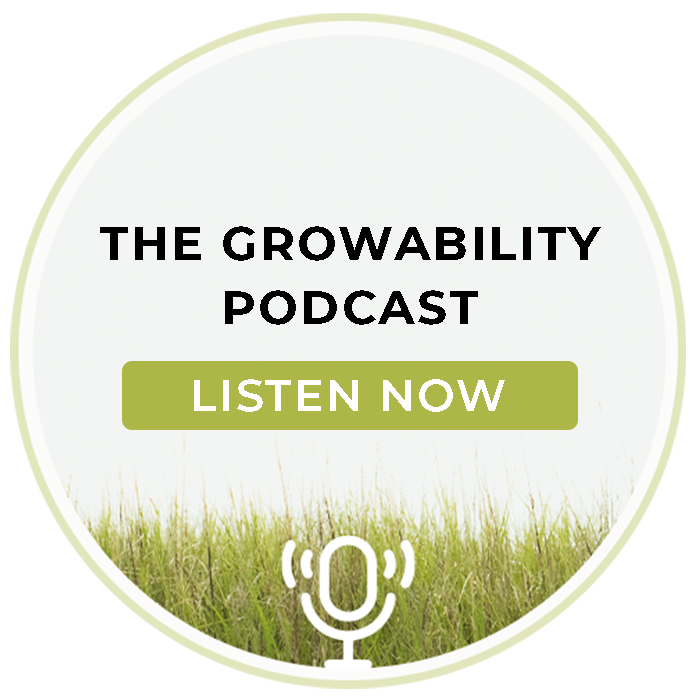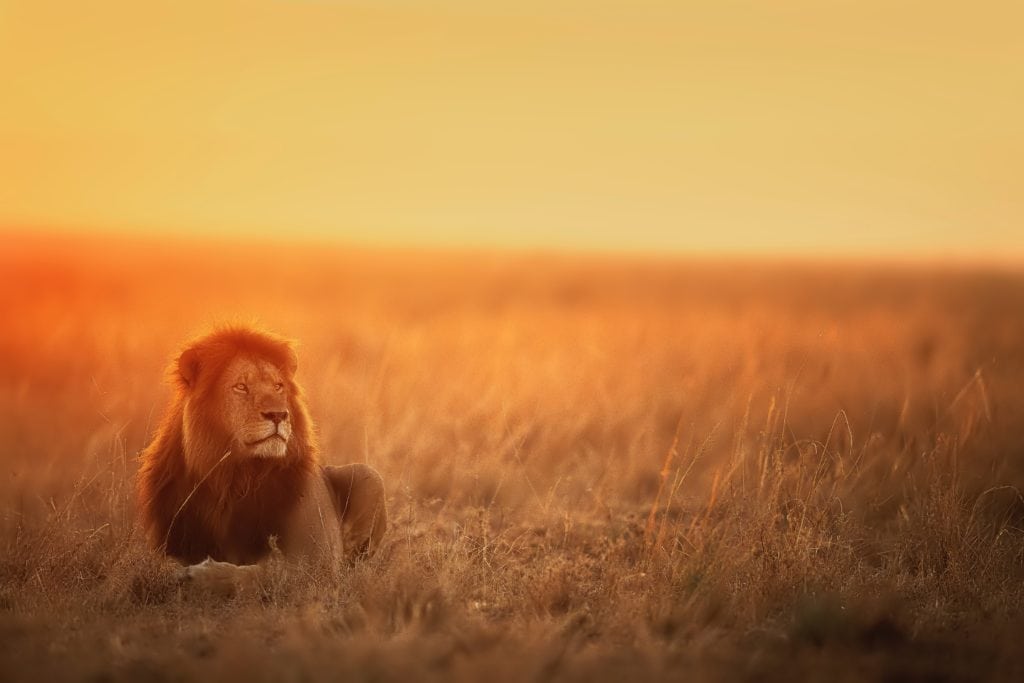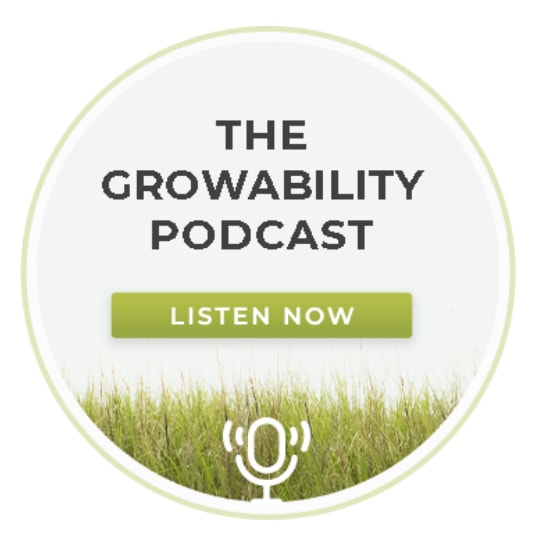This is the first episode in a new series about selling without being fake. In this episode, we talk about clearly defining what your customer values and developing an effective customer survey.


This is the first episode in a new series about selling without being fake. In this episode, we talk about clearly defining what your customer values and developing an effective customer survey.

This is the second episode in a series about having the right team and plan for your business. This episode talks about the necessary ingredients of a plan. Motivation, collaboration, and action.

No matter what business you're in, you need people in your organization that are either a fountain or a builder or a pourer.

A lot of times, firing isn't really firing. It's transitioning. I actually like the term retire. It's like where you get new tires and then you keep going. So I'm going to retire this person. Well, yeah. Here, new tires are great. Love you. I think you can do better somewhere else. I'm going to retire you and put you in another organization.

This episode is the first in a two-part series about firing employees at work.
The Growability® podcast is designed to teach business owners and non-profit leaders a more excellent way to run their business.

This episode teaches the three crucial ingredients necessary to grow a happy and productive team: incentive, expectation, and communication.
The Growability® podcast is designed to teach business owners and non-profit leaders a more excellent way to run their business.

This episode breaks down the popular DiSC personality profile and teaches leaders how to build the perfect team for their business.
The Growability® podcast is designed to teach business owners and non-profit leaders a more excellent way to run their business.

Podcast: Play in new window | Download
Joshua MacLeod:
If you want to know what the ultimate heart is behind Growability, behind my heart and even starting this thing, it really is developing relationship across leaders, who are in spheres of power to do something good, to make an impact in their community. That’s what it’s all about.
Podcast Announcer:
Welcome to the Growability podcast, teaching business and nonprofit leaders, a more excellent way to run a business. Visit growability.com for your leadership, coaching consultation and business collaboration needs. Today’s episode teaches leaders about the incredible importance of leveraging community to create goals. Here are your hosts, Bernie Anderson and Joshua MacLeod.
Joshua MacLeod:
There’s at least three really important inputs when you’re creating a goal. One is age, somebody who’s older or younger than you. One is “talk to your spouse” or somebody from the opposite sex to get their input and insight. And then the third would be from a different political, socioeconomic, racial, cultural background. The more diverse a view that you can get, the more sustainable your goals are going to be.
Joshua MacLeod:
It reminds me of the story in the Old Testament where King Solomon is the wisest King that ever lived…an incredible empire. I think his net worth was somewhere in the neighborhood of $4 trillion in gold, as opposed to the richest people in our day with $27 billion or something like that. So King Solomon is this opulent extreme. When he dies and his son, Rehoboam comes to take the throne.
Joshua MacLeod:
All of the people come and they say, “Hey, can you lighten up the load on us a little bit and give us a little bit of an easier time.” And Rehoboam, the first thing he does is, he goes to all of the counselors in the kingdom that are a bunch of old people, “Hey, what do you boomers think that I should do in this situation?” So the boomers come back and they’re like, “Yeah, they’re right. You should lighten up the load a little bit. The people will respect you. If you give them an easier burden, that’s a great strategy. You should do that.” So then he goes, and he talks to his own peer group, and his own peer group are like, “Your dad whipped them with whips. We’re going to whip them with scorpions. You go tell those stupid people how great we are.”
Joshua MacLeod:
So if Rehoboam would have listened to the older generation when he was creating his goals, he would have actually had an empire that would flourish and grow.
Joshua MacLeod:
And instead he listened to the younger generation, and he lost the entire tribe. They became his enemies. So simply listening from a different viewpoint, it’s critically important to make sure that your goal is as mature and safe. If you don’t listen to different generations, then your goals are likely going to be slightly immature, not as safe.
Bernie Anderson:
Yeah.
Bernie Anderson:
No, I remember when I was a very, very young pastor, I wasn’t even 30 years old yet. One of my friends, was a guy named John. It was one of the first times I remember having a peer who was my dad’s age, but we were peers. We respected each other and fed into each other’s lives, even though I’m 25 and he’s 55, right. You can have peers outside of your age group in generational lines. And I think that’s really, really important, leaders, good leaders, I think are going to do that. They’re going to listen to the people older. They’re going to listen to the people younger. I mean, both have something to offer. So I think one of the important questions coming from this is, okay, so how do we go about that? What are some things you’ve done for that?
Joshua MacLeod:
I have a singular answer for this. It’s share a meal. There’s no better way to develop a relationship than share a meal. If you’re going to go out and have a zoom call, it’s not as good as having a coffee meeting. But if you’re going to have a coffee meeting, it’s not as good as sharing a meal. When you really want to develop relationship with somebody and get to know them, share a meal, have them to your house, eat a meal together, get your families together. So I want to go create a goal.
Joshua MacLeod:
Everybody that I would talk to is going to be a yes man that totally agrees with me. Why don’t you go and actually get someone with a different opinion. As you’re sitting there having dinner with somebody say, “Hey, I’m thinking about doing this and what do you think about this? How does this meet you?” And often the perspective that comes out of that is life-changing, it’s dynamic.
Bernie Anderson:
It’s funny because this is a leadership podcast, right? Our leadership, we’re talking about a leader’s lunch and learn thing, but I know a lot of leaders who hardly ever do that. Having meals together with people that are not like you, even to the point of being uncomfortable, it’s actually so good and so helpful. And it’s going to make you at the end of the day, set and achieve better goals.
Joshua MacLeod:
I mean, really what you’re doing is, you’re giving that person honor, simply bringing honor into a community, bringing honor into a dinner or something that is so valuable to developing relationship. But then the net result is your goals are more realistic, which allows you to serve more impactfully in your community.
Podcast Announcer:
You are listening to the Growability podcast. This podcast is a shortened version of the Growability live Lunch and Learn, streamed each Monday at 12 central on Growability’s Facebook and YouTube live stream. Every great business leader should have a coach. Visit growability.com to find the perfect coach for your leadership needs.
Joshua MacLeod:
I’ve done a lot of thinking about what makes a community, a community and really what impacts a community. So when I spent seven years in 21 countries studying global poverty, one of the things that I was trying to figure out was, how do we systematically help the least of the least? Not just a feel-good change here for like three or four people, but systematically, how can we help a local government or a region or a community? How can we actually create systematic change to fight poverty and alleviate poverty in this situation? And as I started studying that, I noticed that there are typically, in any community, five spheres of influence or five spheres of power. So the first is the government, whether the government is good or whether the government is bad, the government is a sphere of influence. The second is what I would classify as art, media, your musicians, your artisans, your filmmakers, it’s basically people that are creating art.
Joshua MacLeod:
So you’ve got government, you’ve got art. And the third is business. The business obviously creates revenue. It creates economic stimulus, gives people jobs. So business is a major area. The fourth is education, so your schools, your universities, there’s a lot of power and influence that come from educators because you’re teaching the minds of how people can learn, how to learn and how to think. And then finally you have the faith community. They’re the people that make things happen through goodness and kindness. It’s a powerful group in any community. So influence from government, influence from art, influence from business, influence from education, and influence from faith. The challenge in any community is that most of these spheres of power or of spheres of influence are primarily engaged in gaining and keeping power for themself. So if I am government say, and I’m the Republican party, my primary objective is gain power for the Republican party.
Joshua MacLeod:
If I’m the democratic party, my primary objective is to gain power for the democratic party. If I am the independent party, my primary objective is gain power for the independent party. And then even offshoots of that, if I’m black lives matter, my primary objective is I’m going to gain power for black lives matter. The challenge with gaining power for yourself or your own organization is that, that will never create a systematic change. It will never create a community change. The way that I create community change is I share some of the power and the influence that I have with others. So I’ve read an amazing book that I really recommend it’s called, I Was Hungry. This guy, Jeremy Everett, he went down after Katrina, and he was looking at the devastation that happened from hurricane Katrina. So many people were left without water. So many people were left without shelter.
Joshua MacLeod:
All of the emergency systems were flawed and broken. And he looked at this challenge of, well, how do we actually create help and how to create blessing and restoration in Louisiana, after Katrina. And he realized that the only way to do that is actually work in concert and community with others. So he started a program that was about food scarcity. So he’s from Texas or he moved to Texas. And he wanted to create change in his community about the kids that didn’t have access to food. So I think it was at church one day and he went to the back of the church and there was a dumpster. And there were these kids in the dumpster foraging for food. And he’s like, “How can this happen? This is 2020”, or whenever he did this, “There’s kids in a dumpster.”
Joshua MacLeod:
“Surely there’s a place where they can go get a meal.” So what he didn’t do, which is what so many organizations do, is said, “Okay, I’m going to start, the Jeremy Everett Food Pantry, and I’m going to get my friends to give me a thousand dollars so that I can actually give six kids food in the next week.” And how many food programs are already existing in a community? What Jeremy did is he said, “Okay, who are the decision-makers in the community? Where are the spheres of power in the community? And let’s get together, share a meal, have a conversation and talk about how can we work together to solve food scarcity in our city.” So had a big meeting. There was government people there, there were faith leaders there, there were business leaders there, there were art people there and there were educators there.
Joshua MacLeod:
Now what happens as the meals are being shared, and people are talking with each other. Now, I have some relationships and I’m not just thinking about how corrupt this business guy is. I’m realizing, “Oh, that business guy actually funded this food program over here. Maybe they would fund this thing over here.” And that government person says, “Oh, this faith community that we’ve been so worried about is actually doing the most good. And we shouldn’t be worried about them. We should be partnering with them.” And what happens is those generational boundaries go away. The cross cultural boundaries, go away, your prejudices in various angles, go away. And then when you create a solution, you’re actually creating a solution that is good for the community. And you know, Bernie, I’m so passionate about that, because it is so non-existent. We are so fundamentally bent on protecting and growing our powers sphere, that we are never reaching across the boundaries, giving up some of our power, developing relationship, increasing the humanity of just having a reasonable conversation.
Joshua MacLeod:
What we have is a bunch of silos of nice people doing good things, but it’s not actually good for everybody. It’s not good for the whole community.
Bernie Anderson:
So give me three steps, three things that our listeners today can do to begin to develop a community that is bigger than their power circle. Develop a community that’s going to allow them to make really big goals. How do we do that? What are three steps that we can do to make that happen?
Joshua MacLeod:
Number one, very practical, find three organizations that are doing the same type of thing and don’t start your own. It’s kind of like, if you’ve already got a fire going and you just throw logs on that fire, that thing grows a lot brighter. But if you go to start your own fire, then that fire is not going to put out nearly as much heat as if you just throw your log under the fire that already exists.
Joshua MacLeod:
What we do in community development, is we go start our own fire, because our own fire is going to have our logo on the logs that we throw in it. Well, guess what? The logo doesn’t really mean anything. What means anything is the heat that’s produced from that fire. Number two, set up some meals, listen to the people that you want to do good for. And don’t assume that, you know best what good means. Make your plans based on what the feedback they give you. Actually share a meal with somebody and hear their story. Don’t just focus on the good that you want to do. Focus on getting to know them and learning about them. And then the third thing is go out and experience what somebody else is doing and stop asking, “What is it going to take for me to create this change” but “What would be my best role in helping this other organization to expand what they’re already doing?”
Joshua MacLeod:
I wish that leaders would do that. Don’t you wish leaders would do that, Bernie?
Bernie Anderson:
Well, I love what you said, this is about actually changing the world and not glorifying your brand. And I think that’s really where people need to get that, leaders need to get that, leaders in particular, need to not be so insecure that, “Oh, we got to make sure, we got the brand, is there a t-shirt with the logo on it or whatever.” Instead, just do good and you don’t have to have your name on it at all.
Joshua MacLeod:
If you want to know what the ultimate heart is behind Growability, behind my heart and even starting this thing, it really is developing relationship across leaders who are in spheres of power, to do something good, to make an impact in their community. That’s what it’s all about.
Bernie Anderson:
I think it’s a part of what we, who are in the leadership space and the business space and the nonprofit organizational leadership. I just think that’s a huge part of what we have to be doing, or why are we doing it to begin with.
Podcast Announcer:
Thank you for listening to the Growability podcast. To share Growability with your community, please like and share this podcast with others. Visit growability.com to see how joining a Growability collaborative can help you develop vision, rhythm, and community for your business needs.

Podcast: Play in new window | Download
Joshua MacLeod:
Multiplication in a business is a result of simplification in a business. You can’t multiply complexity. When you multiply complexity, you have chaos. When you multiply simplicity, you have profit.
Growability® Announcer:
Welcome to the Growability Podcast, teaching business and nonprofit leaders, a more excellent way to run a business. Visit growability.com for leadership, coaching, consultation and business collaboration needs. Today’s episode is about the critical importance of understanding your business season as you create goals. Here are your hosts, Bernie Anderson and Joshua MacLeod.
Bernie Anderson:
Last week, Joshua, You and I talked about BHAGs, Big, Hairy, Audacious Goals. And we talked last week about the fact that these BHAGs, these Big, Hairy, Audacious, Goals are rooted deeply in our vision. What’s the difference between a Big, Hairy, Audacious Goal and a Big, Hairy, Ridiculous Goal? Like to me, that’s a fine line, right? I just think that would be helpful if we talked a little bit about that. And I think that leads us into some pretty interesting solutions and conversations.
Joshua MacLeod:
I noticed that you wrote in the tag for our show today, we’re going to give the definition of a pipe dream. Like what’s the difference between a Big, Hairy, Audacious Goals and a pipe dream.
Bernie Anderson:
And a pipe dream. Pipe dream are the dreams that you have when you’re smoking an opium pipe. So, that’s where that comes from. So your Big, Hairy, Ridiculous Goal is the thing that like, dude, you’re just smoking opium, right? So they’re not realistic. They’re only what you dream about and not actually what you can do anything about. Right?
Joshua MacLeod:
How do you protect yourself from a Big, Hairy, Ridiculous Goal or a pipe dream when you’re creating a Big, Hairy, Audacious Goal? I think the big answer to that is understanding your business season and understanding what stage of the game that you’re actually at. Your Big, Hairy, Audacious Goals, they don’t necessarily have to be seasonal. There is a bit of a dream in that.
Bernie Anderson:
Yeah, I think that’s good.
Joshua MacLeod:
But if a Big, Hairy, Audacious Goal can’t be simplified into smaller goals, then it’s too big of a goal. Just like in the natural world, we have four seasons we have spring, we have summer, we have fall and we have winter. Any business that’s going to achieve a goal. Any business that’s actually going to complete the circle, bring in profits, serve a customer, accomplish that thing that you set out to do, They have to go through the different seasons.
Bernie Anderson:
Like I think it might be helpful for folks if we broke that down just a little bit to what does that actually mean? Like how do we look at those seasons in such a way that maybe will make sense to people?
Joshua MacLeod:
Let me give you an example of an organization that started with a Big, Hairy, Audacious Goal and then went through seasons to reach a different, Big, Hairy, Audacious Goal.
Bernie Anderson:
Perfect. Perfect.
Joshua MacLeod:
So the company I’m going to talk about is one that everybody understands and knows is McDonald’s. The McDonald brothers, Dick and Mac McDonald, they graduated high school in 1929. They were living in New Hampshire and their big goal, their Big, Hairy, Audacious Goal was to be in the film industry in California. So McDonald brothers had a Big, Hairy, Audacious Goal. What was it? Own a Hollywood studio and create films and make that work.
Joshua MacLeod:
So with their high school degrees, they jumped out into their car. They drove to California. They started working at stage hands in a movie theater, Big, Hairy, Audacious Goal. What happened was this is right the beginning of the great depression. And that was a pretty miserable time to own a movie theater. So what they ended up doing is they bought a 750 seat theater called The Beacon Theater and quickly went out of business. So their Big, Hairy, Audacious Goal happened on paper, but the reality of it wasn’t very exciting. So then they started their second Big, Hairy, Audacious Goal, which is let’s create a restaurant business. So the way that that came about is as they were working in their theater, that was failing, they noticed that the only person making any money in town was the guy on the corner, selling hotdogs at the hotdog stand.
Joshua MacLeod:
So the McDonald brothers go to the hot dog guy. And they’re like, okay, how does this work? What are you doing? And they realized that we can do this. We can set up a hot dog, stand. Our big dream, the big, really great dream of being in the movies, wasn’t really something we could accomplish, but a hotdog thing. This is something we can do. So instead of a hotdog stand, the McDonald brothers started a hamburger stand. Their hamburger stand was a big hit and people could go and they could get a cheap meal in the great depression. This really works. And they started, what I would say is the first stage of growing a business. This is your startup phase. So there’s three critical ingredients for [crosstalk 00:05:10].
Bernie Anderson:
Okay. Okay.
Joshua MacLeod:
This is your spring. This is your startup. And there’s three critical ingredients that happened here for the McDonald brothers. The first is passion. The second is market. And then the third is resource. When they wanted to start a movie theater, they didn’t have any resource. They had passion, they were excited. We’re going to go do this. I’m going to serve. We’re going to build this movie theater. It’s going to be awesome. The market wasn’t there, there weren’t enough customers to actually come and visit their theater.
Bernie Anderson:
Right.
Joshua MacLeod:
So they had one of the three key ingredients to a startup, the passion. And I think a lot of times the leaders that you were mentioning in the beginning of the show, the people who are like great visionaries, who are going to do all this stuff, they’re really good with the passion scene. I’ve got vision, we can go do all this stuff. But they’re missing the other two key ingredients, which are fundamentals to starting an organization.
Joshua MacLeod:
One is a market, which is a group of people who will buy what you’re going to sell. And then the second is a resource. This is the amount of money that you can burn or spend as you start your organization. So the McDonald brothers had to work long enough to where they could buy a hot dog stand. And they realized that people were going to hotdogs stand. So now they had this startup. So of course, you know what the McDonald brothers did. They started selling barbecue at their hot dog stand.
Bernie Anderson:
The McRib. The McRib, that’s their thing.
Joshua MacLeod:
The very early beginnings of the McRib [crosstalk 00:06:51] Donald brothers, they started this hamburger stand, but then they added barbecue to it. And what they found in the second mode of their business, this is where they moved out of startup into growth. They realized that 80% of their sales were coming from hamburgers and less than 20% of their sales was coming from the barbecue.
Joshua MacLeod:
The second season that you have to think about is your growth mode. This is your summer and it’s hot in the summer. You’re sweating. It’s hard work, but you’re growing. The passion of we’re going to do this thing. We’re going to start a movie theater, or we’re going to start a hot dog stand. Now it has to mature into a purpose. A purpose. And we’ve talked about this a lot. And you know, this is something we share with all of our clients. The difference between a passion and a purpose is a passion is often focused on yourself. A purpose is focused on somebody else. So who are we actually benefiting with this? Like we said, on the other podcast, how to create abundance for somebody else. The second is really defining your niche. So they, they took their menu and they completely trimmed it down to where now we are only offering four things.
Joshua MacLeod:
Incidentally, those four things are what the customers are actually buying. So when you have a market, now I have a niche and now I can actually create process. And then they started hiring really good teamwork members. So as a business matures out of the startup mode, out of the spring into the growth mode, into the summer, there’s three fundamental ingredients, your passion matures to purpose, your purpose matures to a niche, and then your niche matures to having a really good team. Now here’s why all of this is important. If I’m creating goals for this year and I am a startup company, those goals are going to be very different than if I’m creating goals for this year and I’m in growth mode. If I don’t have a rock solid passion, market and resource and money to spend, I need to pause and delay and make that I can get that passion, market and resource settled before I move into the second mode.
Joshua MacLeod:
Once I’m in the second mode, then I can make different goals.
Bernie Anderson:
I love that growth is not just get bigger. It’s get focused. And I think that’s important. Like when you’re in the spring, it’s like there’s stuff growing all over the place. And then in summer, it’s like, all right, we’re focused on this thing that actually we know works and we know is what the people want and it’s going to be what actually helps our business to grow.
Joshua MacLeod:
That’s so true. And I think this is something that we see a lot when we’re working with clients is the thing that they’re necessarily excited about in the business is not necessarily the thing that their clients are excited about. And the core business that they think is their core business is not necessarily their core business. Multiplication in a business is a result of simplification in a business. You can’t multiply complexity. When you multiply complexity, you have chaos. When you multiply simplicity, you have profit. So if I can figure out what is that thing that my customer wants, that we can do really great, that my team is really good at. Let’s multiply that. Then you’re creating really good growth. And that’s where you should create goal.
Growability® Announcer:
You are listening to the Growability Podcast. This podcast is a shortened version of the Growability Live Lunch and Learn, streamed each Monday at 12 central, on Growability’s Facebook and YouTube live stream. Every great leader should have a great coach. Visit growability.com to find the perfect coach for your leadership needs.
Joshua MacLeod:
So the third season, if they get past the growth mode is maturity season. Your purpose established through partnerships. The niche allows you to have a platform. And then the teamwork is maximized through systems. McDonald’s obviously is like the King of systems. So what happened in their maturity phase is that McDonald’s just kept asking the question, is this as good as it possibly can be? Is there a way that we can improve this process? Can we achieve less with more? Can we do this faster? If we place the oven here, will that make a difference than if we place the oven here? If we use this dishwasher, does that make a difference? What they did is they were able to simplify their processes to where instead of a hamburger costing 30 cents, everywhere else, they could provide a hamburger in the great depression for 15 cents. Well now, everybody is going to McDonald’s because they’re getting a good hamburger and they’re getting it fast and they’re getting it cheaper than anywhere else.
Joshua MacLeod:
So they really started to dominate the market. At that point, the business had really gone through all the seasons. You’ve got your startup, your spring, your summer, your growth, your maturity, your fall. And so now the McDonald brothers had to make a decision were they going to keep doing what they were doing? Or were they going to sell the business? They decided that they would sell the franchise. They would sell the whole company to Ray Kroc. And it was a really good buy for Ray Kroc because they sold it for $2.7 million. And Ray Kroc turned it into a hundred billion dollar industry.
Joshua MacLeod:
But in one sense, the McDonald brothers weren’t interested in the blood, sweat, and tears that it would take to go to the next level. They were like we’re retired millionaires we’re buying our cadillacs, we’re off into the sunset. This is great. We started this thing. They’re Big, Hairy, Audacious Goal move from being, let’s create a movie theater and be Hollywood stars to let’s create community restaurants and really serve a ton of people with some good food and quality time and make going out to dinner something that everybody can do.
Joshua MacLeod:
So class let’s review, you have your spring. The key ingredients for your spring is a passion, a market and resource. Then you have your summer, the key ingredients for your summer purpose, niche, and teamwork. Then you have your fall, the key ingredients for fall partnerships, platforms, and systems. And then you have your winter. Your key ingredients for the winter are preparation, service and innovation.
Bernie Anderson:
How does a business owner, a leader in a business, a leader in a non-profit, what are some good ways for them to see what season they’re in?
Joshua MacLeod:
Well, here’s how, you know, if you’re in startup, you are surviving.
Bernie Anderson:
Right.
Joshua MacLeod:
The business needs to move in an up into the right direction. So my first month in the business, I might lose $5,000. If in my next quarter or whatever, I’m losing $4,000 a month. Well, Hey, I’m actually making progress. In the next quarter, I’m losing $2,000 a month. And then in the next quarter, I break even. And then the next quarter, I’m making $2,000 a month. That’s kind of the direction that startups start with. There’s like an idea that you can start with nothing and start a business. That’s actually not true. That’s kind of the same concept as like, my idea is good enough to start a business with, I don’t have to have resources. I’ve got a million dollar idea. Now the million dollars is in the process and the team. It’s not in the idea. The idea is 1%, the execution of the idea is 99%.
Joshua MacLeod:
Get enough customers, keep the lights on, make things go. That’s when you are in your startup mode. In growth, if you have discovered what really works in your business, you’re ready for growth. I think at the point at which you have an aha moment looking at your paycheck and your product and realizing where your paycheck comes from, that’s when you know, okay, I’m in growth.
Bernie Anderson:
So growth is ultimately, it’s ultimately recognizing, the word scale gets used a lot these days, right? But it actually is where you recognize where you can actually scale what you’re doing, where you can actually grow this because I’ve narrowed down my niche to something that, ah, I can reproduce this over and over and over and over again, almost effortlessly. Right?
Joshua MacLeod:
I like that. I think you’re right on that. Growth is the point at which you recognize where you can scale. Maturity is the point in when do you actually scale. If your focus is on, how can I create systems that are going to be so good that they will scale this organization? That’s how I know I’m in that maturity phase. Finally, how do I know if I’m in a decline or renewal? If it’s not fun anymore, you’re in a decline or renewal, that’s just, I’m going through the motions. I’m doing this thing. That’s time to renew.
Growability® Announcer:
Thank you for listening to the Growability Podcast. Do you have a Big, Hairy, Audacious Goal for your business? Do you want to know what business season you are in? Visit growability.com to see how joining a Growability collaborative can help you develop vision, rhythm, and community for your business needs.

If I can't, as the leader of an organization, create a big, hairy, audacious goal, why do I expect anybody on my team to want to be at my organization? We don't know where we're going.